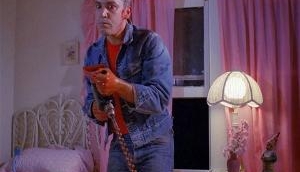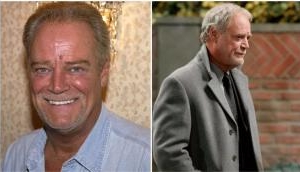
"I want your horror / I want your design / Because you're a criminal / As long as you're mine."
These words - lyrics of Lady Gaga's suggestively titled smash hit Bad Romance - quite literally form the psychological backbone of director Guillermo del Toro's latest. Because Crimson Peak, a queasy tale he paints with broad, lush strokes of fantasy and fear, is designed to horrify through intolerance, not physical form. You will be scared for what it suggests, not how or why it suggests.
How del Toro uses mysticism as a metaphor
I'm not too sure del Toro believes in the sanctity of cinematic ghosts. For him, they're not elements of horror and chills - a fact evident by his tendency to overexpose their ghoulish shadows to the point of monotony. Their presence merely fulfills del Toro's rather vivid, rich and twisted vision of love; an allegory for how there can be nothing more monstrous than misdirected passion. As he demonstrates here, they're little more than subversive atmospheric devices - a necessary evil required to keep the experience immersive enough. Only young Edith Cushing (Mia Wasikowska) is tormented by them.
But then, most writers are tortured souls. As a budding author of ghost stories, living in a privileged American environment, perhaps Edith deserves it. Her pale face, however, invokes imagery of a stark, snowy English countryside. It is her destiny. Hence, after being swept off her feet by a mysterious Baronet, Sir Thomas Sharpe (Tom Hiddleston), Edith (Sharpe by now, but not quite sharp yet) travels across the Atlantic with him back to his crumbling family mansion. This museum of chills aside, she must put up with the domineering, unsettling presence of his sister, Lady Lucille Sharpe (Jessica Chastain).
But does an artist like del Toro need jilted ghosts to tell his stories?
Her name (Eeeeeeeeee- dith) simply allows the ghosts to sound menacing when they call out for her. Yes, they float, groan, knock on doors, break deafening silences and almost harbour pleasing personalities, but that's only because what would a dark, dilapidated 18th century British mansion be, if not possessed? What would an exquisitely designed gothic romance be without careless whispers? What would the present be without a secretive, buried past?
Period tales don't quite have the luxury of modern-day tropes like found-footage cameras, phones and technology to pull off their twists. Classical narrative forms like flashbacks - or in this case, restless perceptive spirits - become a necessity. And del Toro does go the whole hog. With his sort of treatment, where he invariably finds poetry in darkness, and music in the macabre, there's always the perpetual danger of the costume-ball syndrome. But there's something hypnotic about Hiddleston and Chastain; they're more than the clothes they wear and the masks they bear.
How Chastain epitomizes the face with many masks
Chastain, especially, gives a perverse new dimension to her Addams Family act. She was terrorized by similar-looking phantoms in del Toro's supernatural horror production 'Mama' sometime back; here, she renders those same hollow souls useless. Cold on the heels of an authoritative astronaut role in 'The Martian', her frigid presence proves that there's enough terror to be found within civilization; there's no real need to resort to ghosts and gore. She only reiterates how del Toro's weakness for striking surrealism is perhaps this film's most jarring disappointment.
Ironically, the traditional horror-movie tropes - nightmares, demonic voices, creaky walls, suggestive sound design and an obsession with blood-on-snow metaphors - are the most unnecessary subsidiaries of his vision. There's so much naturalness and gloom to explore within these spaces that supernatural-ness and basements seem like a convenient copout.
When 'The Shining' meets 'Jane Eyre' in a Tim Burton universe
The one thing 'Crimson Peak' does, despite its indulgences, is haunt. And not the way you'd imagine. It haunts more in the vein of Pan's Labyrinth, del Toro's flawless portrait of imagination and memories. It haunts with its Corpse Bride-ish mood, and enchants with its words, and eventually evokes an ache that comes only with watching incomplete creatures. The expository phases are dotted with flourishes of quotable prose, and the conclusion thrives on brutal balladry.
The director commits to a full-bodied re-visualisation of the haunted-house genre. And fittingly, he succeeds, somewhat, in creating a gothic cathedral amidst an overpopulated landscape of modern skyscrapers.








![BJP's Kapil Mishra recreates Shankar Mahadevan’s ‘Breathless’ song to highlight Delhi pollution [WATCH] BJP's Kapil Mishra recreates Shankar Mahadevan’s ‘Breathless’ song to highlight Delhi pollution [WATCH]](https://images.catchnews.com/upload/2022/11/03/kapil-mishra_240884_300x172.png)

![Anupam Kher shares pictures of his toned body on 67th birthday [MUST SEE] Anupam Kher shares pictures of his toned body on 67th birthday [MUST SEE]](https://images.catchnews.com/upload/2022/03/07/Anupam_kher_231145_300x172.jpg)






